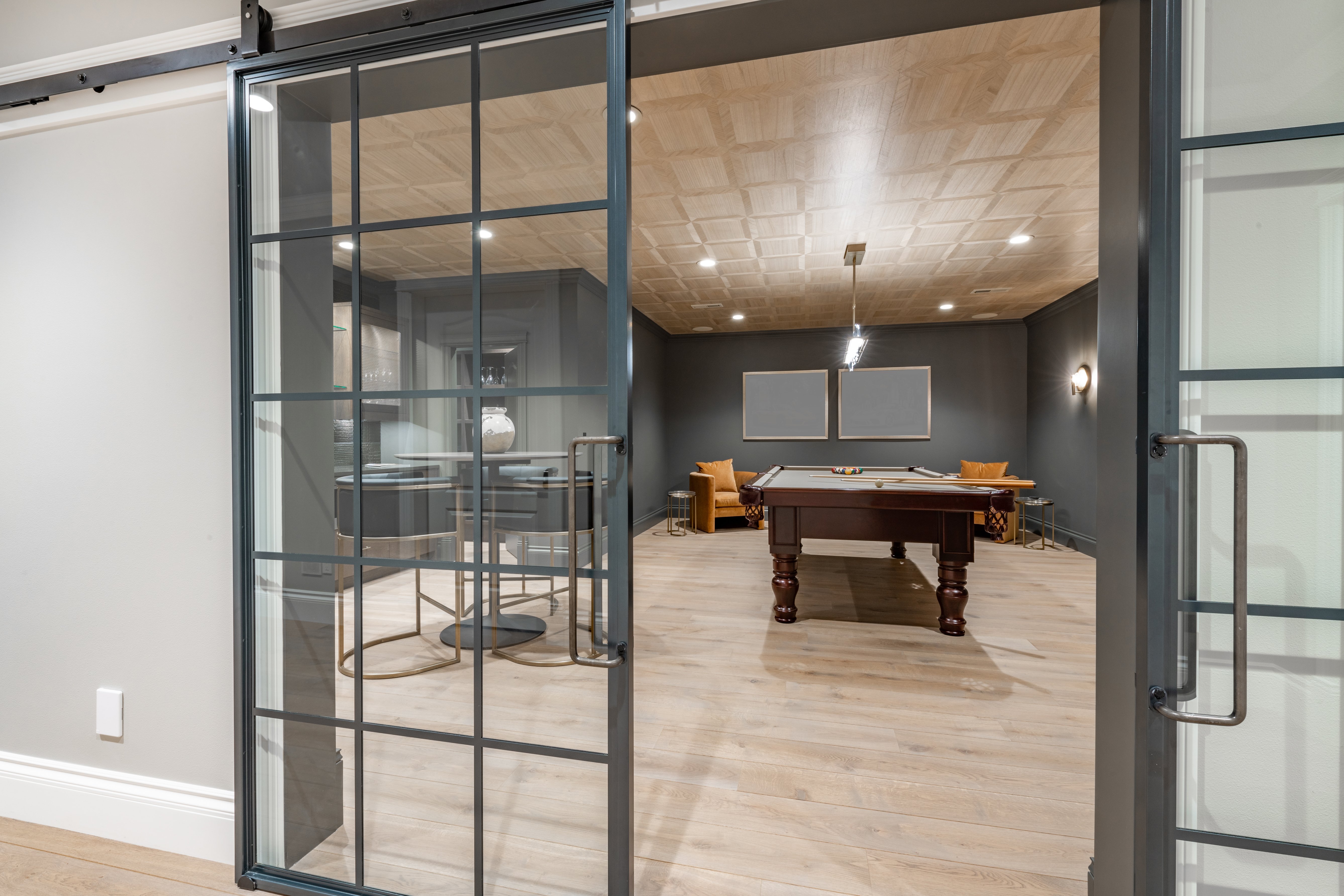
In This Article
Understanding the Causes of a Cold Basement and How Radiant Floor Heating Can Provide a Solution
Basements often become underutilized spaces due to their persistent chill, deterring homeowners from fully embracing this valuable area. Understanding the root causes of a cold basement is essential to transform it into a comfortable and inviting extension of your home. In this guide, we delve into the primary reasons behind basement coldness and explore effective solutions to create a warm and welcoming environment.
Basements are inherently cooler than other parts of a home due to several factors:
• Below-Grade Location: Basements are situated underground, surrounded by soil that acts as a thermal mass, absorbing heat from the basement and maintaining cooler temperatures year-round.
• High Humidity Levels: Moisture infiltration through foundation walls or floors can elevate humidity levels in basements. This increased moisture not only makes the air feel cooler but also contributes to discomfort and potential mold growth.
• Thermostat Placement: In many homes, thermostats are located on the main floors, regulating temperature based on readings from those areas. This can result in inadequate heating for the basement, as the system isn’t accounting for the lower temperatures in that space.
Implementing Supplemental Heating Solutions for a Warmer Basement
A common challenge in maintaining a comfortable basement temperature is the reliance on space heaters as supplementary heat sources. While space heaters can provide localized warmth, they are not designed to heat an entire basement effectively. Achieving uniform heating with space heaters would require multiple units strategically placed throughout the area, leading to increased energy consumption and potential safety hazards.
A more efficient and effective solution is to install an electric in-floor heating system during the basement finishing process. This approach involves placing a thermal insulating underlayment, such as ThermalSheet, over the concrete slab. ThermalSheet is a synthetic cork underlayment that serves as a thermal break, preventing heat loss into the concrete and ensuring that more warmth radiates upward into the living space.
After installing the underlayment, an electric floor-heating system can be laid on top. This system emits consistent heat that rises through nearly any flooring material, ensuring a comfortably warm basement. By incorporating these components, the concrete slab is prevented from absorbing the supplementary heat, resulting in a more energy-efficient and comfortable environment.
Integrating an electric in-floor heating system with proper underlayment not only enhances comfort but also improves the overall energy efficiency of the basement space. This method provides a comprehensive solution to the common issue of cold basements, offering consistent and evenly distributed warmth.

Enhancing Basement Comfort with Smart Thermostat Integration
A significant factor contributing to a cold basement is the placement of your home’s thermostat. In many two-story homes with a single furnace, the thermostat is typically located on the first floor. This setup doesn’t account for the basement’s temperature, leading to discomfort in that area. Basements often lack sufficient sunlight and are situated below ground level, making them inherently cooler. Since the thermostat regulates the home’s temperature based on readings from its installed location, the basement’s unique heating needs are often overlooked.
To address this issue effectively, consider installing the WarmlyYours nJoy WiFi LED Touch Programmable Thermostat in your basement. This advanced thermostat offers several benefits:
• Remote Control and Scheduling: With WiFi capabilities, you can manage your basement’s heating remotely via your smartphone or integrate it with voice-controlled devices like Google Assistant or Amazon Alexa. This allows you to set up to 10 different heating schedules, ensuring the basement is warm when needed and conserving energy when it’s not in use.
• Energy Usage Tracking: The nJoy thermostat enables you to monitor and adjust your energy consumption, promoting efficient heating and cost savings.
• Sleek Design and Easy Installation: Featuring a minimalist LED touch interface and a slim profile, the nJoy thermostat blends seamlessly with various decors. Its user-friendly design ensures straightforward installation and operation.

By integrating the WarmlyYours nJoy WiFi Thermostat with a radiant floor heating system in your basement, you can achieve consistent and comfortable temperatures, effectively overcoming the common challenges associated with basement heating.
Transforming a cold, unwelcoming basement into a comfortable living area requires addressing its unique challenges, such as below-grade positioning, limited sunlight exposure, and thermostat placement that often overlooks this space. Implementing solutions like radiant floor heating, enhancing insulation, and integrating smart thermostats can effectively mitigate these issues. By adopting these strategies, you can create a warm, inviting basement that enhances your home’s overall comfort and usability.
Have Questions About Your Project?
Our team of Radiant Experts is ready to help!
Comments
Stay Updated
Get the latest radiant heating news and tips delivered to your inbox.




Is there a way to move the cold basement air to the upstairs in the summer? My basement is always too cold in the summer and my upstairs is always too warm in the summer. If there was a way to continually move the basement air to the upper floor, we wouldn't need to cool the upstairs as much, right?
That's an interesting question. You don't want to directly cycle the air from the basement to the upstairs as the cycling will sap the warmth/coolness from the air as it strives toward equilibrium. One popular alternative is to install an "attic fan" which is designed to push warm air out of the house from the location it is naturally headed (to the top of the house). If you have basement windows, you can leave one cracked which will allow the warm outdoor air to displace the cold basement air, which can then be drawn upstairs. Hope that helps.
Hi, we just moved to a new basement and it is so cold and thermostat is one floor above us which turns on automatic with the current temperature set on that, and if we increase that upstairs temp. Gets so warm, we are just looking to see the best way to r the thermostat to sense basement’s temp. And start heat sensing our basement temperature. Thanks in advance for your help.
Thanks for reading and taking the time to send us a question! It sounds like you might have a forced air system so it's going to be tricky to get the upstairs and the downstairs "on the same page" so to speak because, as you mentioned, the ambient temperature is set by the thermostat upstairs where it's naturally warmer. You could look into getting a split system with two different thermostats (one upstairs and one in the basement) but that's usually quite costly. If you're planning on redoing the floor in your basement, that's a great opportunity to install an electric floor heating system which will be even more efficient than a split system in terms of heating your basement because the heat will radiate from the floor up. If you're not able to do that, then I would suggest installing a radiant heating panel, which essentially functions like a safer space heater. Hope that helps!